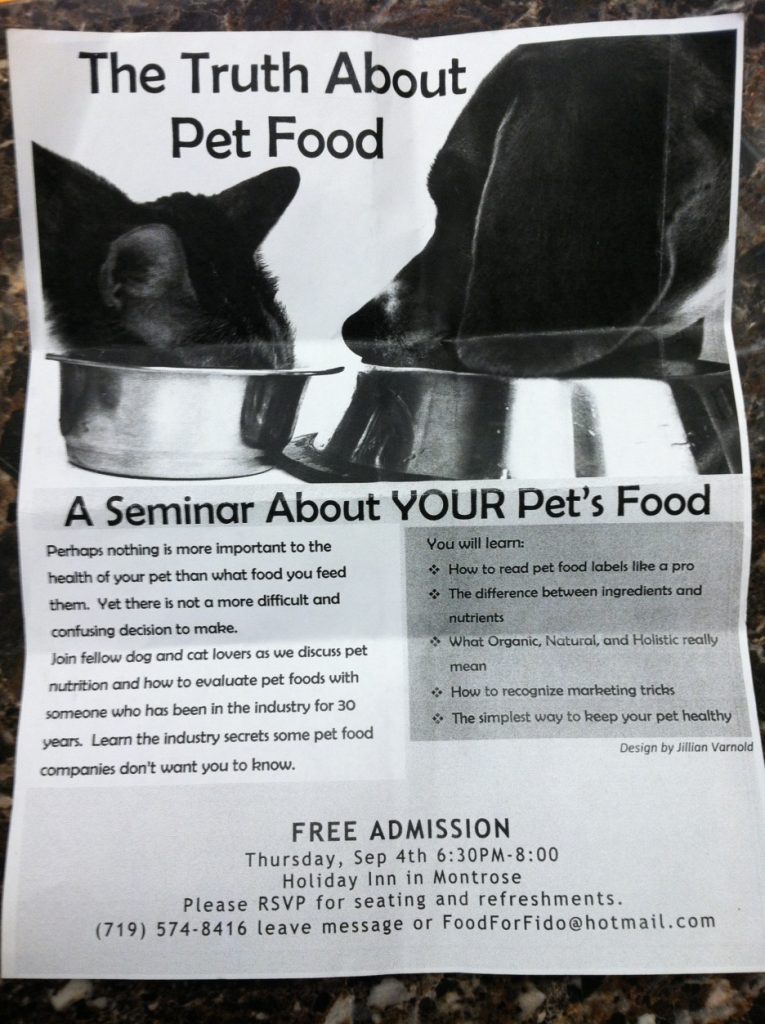Nutrition Tips to Keep Your Pet Healthy

Understanding Your Pet’s Nutritional Needs
Providing your pet with the right nutrition is crucial for their overall health and well-being. A proper diet plays an indispensable role in enhancing their lifespan while nurturing a vibrant and energetic lifestyle. To achieve this, it’s essential for pet owners to be aware of what constitutes a balanced diet for their furry friends, tailoring meals to meet their specific needs.
- Balanced Diet: Make sure that your pet’s meals contain an appropriate mix of protein, carbohydrates, fats, vitamins, and minerals. For instance, high-quality proteins from sources like chicken, beef, or fish should be the main ingredient in your pet’s food. Cats, being obligate carnivores, require higher protein content than dogs, who are omnivores. Meeting these distinct dietary needs is vital for their health.
- Fresh Water: It’s essential to always have clean, fresh water available to keep your pet well-hydrated. Dehydration can lead to numerous health issues, including urinary tract problems in cats and kidney disease in dogs. Offering a water fountain can encourage pets to drink more, improving their hydration levels significantly.
- Portion Control: Regularly monitor your pet’s serving sizes based on their age, size, and activity level to prevent obesity. Overfeeding is a common issue that can lead to serious health conditions such as diabetes, arthritis, and heart disease. Utilizing measuring cups and following feeding guidelines on pet food labels can assist owners in maintaining the right balance.
Understanding your pet’s individual needs is vital and should take into account their age, breed, and activity level. For example, a kitten’s nutritional requirements vastly differ from an adult cat, as kittens need higher levels of protein and fat to support their rapid growth. Similarly, certain dog breeds, like Bulldogs, may benefit from specialized diets to prevent breed-specific health problems, such as respiratory issues or skin allergies. Consulting with a veterinarian can offer tailored advice suited for your pet.
Supplementing Meal Plans
Sometimes, even the best commercial pet foods may lack essential nutrients, leading owners to consider nutritional supplements. Discussing these options with your veterinarian can ensure that your pet enjoys a well-rounded diet. Some beneficial supplements include:
- Omega-3 Fatty Acids: These are particularly beneficial for maintaining skin and coat health. They can help reduce inflammation and improve the overall condition of your pet’s fur, making it shinier and healthier.
- Probiotics: These are important for promoting digestive health. Probiotics can help maintain a healthy gut flora, particularly useful for pets suffering from digestive issues or those who have recently changed diets.
- Vitamins: Vitamins like A, D, E, and specific B vitamins are essential for various bodily functions, including vision, immune response, and energy metabolism. Ensuring your pet has a sufficient intake can prevent deficiencies and promote their overall well-being.
Exploring these nutrition tips can greatly optimize your pet’s health and happiness. Armed with this knowledge, you’ll be ready to delve deeper into specific dietary recommendations tailored for your beloved companion, ensuring they lead a long, healthy life.
DISCOVER MORE: Click here for tips on creating a safe haven for your pets

Diving Deeper into Specific Nutritional Components
To truly optimize your pet’s health, understanding the intricacies of their nutritional requirements is paramount. Every ingredient in your pet’s food serves a specific purpose, contributing to their overall health, vitality, and longevity. As pet owners, being informed about these components allows you to make enlightened decisions that align with your pet’s individual needs.
Key Nutritional Components
When formulating a diet for your pet, consider the critical roles of the following nutritional elements:
- Proteins: Proteins are the building blocks of your pet’s body. They play a vital role in tissue repair, muscle development, and immune function. Quality sources include meat, fish, and eggs. Cats, having a higher requirement for protein compared to dogs, thrive on diets rich in animal protein to support their felines’ unique metabolic needs.
- Carbohydrates: While often debated, carbohydrates can be beneficial for your pet when included in the right amounts. They offer a quick energy source and contribute to digestive health. Look for whole grains like brown rice or sweet potatoes, which not only provide energy but also contain fiber that aids digestion. However, too many carbs can lead to weight gain, so moderation is key.
- Fats: Essential fatty acids, such as omega-3 and omega-6, are crucial for your pet’s coat health, skin condition, and inflammatory response. Fats also aid in nutrient absorption, enhancing the benefits of fat-soluble vitamins. Sources like fish oil and flaxseed oil can keep your pet’s skin supple and their fur lustrous.
- Vitamins and Minerals: Vitamins and minerals support various bodily functions and prevent deficiencies. For instance, calcium is essential for strong bones, while B vitamins help with energy metabolism. Natural sources, such as fruits and vegetables, can be great additions to your pet’s meals, provided they are safe for your pet type.
Although commercial pet foods are formulated to include these necessary nutrients, it’s essential to read the labels carefully to ensure you’re providing the best for your companion. Look for foods that list a specific animal protein as the first ingredient and avoid those containing fillers or by-products.
Understanding Pet Food Labels
The food label is your gateway to understanding what goes into your pet’s diet. In the United States, pet food labeling regulations are overseen by the Association of American Feed Control Officials (AAFCO). This ensures that pet foods meet the minimal nutritional standards set for the health of pets. For a label to be considered “complete and balanced,” it must undergo AAFCO feeding trials or adhere to AAFCO nutrient profiles.
As you explore different pet food options, keep an eye out for specific terms on the packaging, such as “veterinary diet,” which denotes food formulated for specific health issues. These specialty diets can be beneficial when recommended by a veterinarian to address specific concerns like obesity or food allergies.
Staying educated about your pet’s nutritional needs not only empowers you as an owner but can lead to a healthier, happier life for your beloved companion. With the right knowledge, you can ensure your pet thrives, enjoying all the playful, energetic moments that come with a nourishing diet.
| Nutrition Category | Key Features |
|---|---|
| Quality Protein Sources | Essential for muscle growth and repair, protein supports optimal health in pets. |
| Balanced Diet | Integrates the right proportions of fats, carbohydrates, vitamins, and minerals. |
| Hydration | Access to clean, fresh water promotes digestion and prevents health issues. |
| Quality Control | Always check for high-quality brands that use natural ingredients, free from fillers. |
Proper nutrition plays a pivotal role in maintaining your pet’s health. Providing a diet rich in quality protein, such as chicken or fish, is crucial for their physical development and overall well-being. A balanced diet not only ensures the right mix of essential nutrients, but it also enhances cognitive and immune function among pets, helping them to lead longer, healthier lives.Additionally, hydration cannot be overstated. Ensuring your pet drinks plenty of water is vital for kidney health and aids in digestion. Using interactive water bowls can also encourage proper hydration levels, which are often overlooked. Lastly, as a responsible pet owner, always focus on quality control when choosing pet food. Research brands that prioritize natural ingredients, avoiding those laden with unnecessary fillers. A well-thought-out diet can significantly enhance your pet’s quality of life and longevity.
DISCOVER MORE: Click here to learn about positive reinforcement techniques
Feeding Practices for Optimal Health
In addition to understanding nutritional components, the manner in which you feed your pet plays a crucial role in their health and well-being. By adopting specific feeding practices, you can help maintain your pet’s optimal weight, promote a healthy digestive system, and encourage proper behavior. Here are some key practices to consider when feeding your furry friend.
Portion Control
Portion control is essential in preventing obesity, a common concern among pets in the United States. According to the Association for Pet Obesity Prevention, approximately 54% of dogs and 59% of cats are overweight or obese. This condition can lead to severe health issues, including joint problems, diabetes, and heart disease. It’s important to consult your veterinarian to determine the appropriate serving size based on your pet’s age, weight, activity level, and overall health.
Utilizing measuring cups or a food scale ensures accurate portioning, while pre-packaged food often comes with serving recommendations. Always avoid free-feeding, which allows your pet to eat whenever they want, leading to overconsumption. Structured mealtimes foster better digestion and digestive health.
Frequency of Feedings
The frequency with which you feed your pet can also impact their health. Puppies and kittens typically require three to four meals a day due to their rapid growth and energy needs. As they transition to adulthood, two meals a day are often sufficient for dogs, while cats may thrive on multiple smaller meals due to their natural hunting habits. Regular meal times can help stabilize metabolism and prevent hyperactivity linked to hunger.
Hydration Considerations
Water is an essential aspect of your pet’s diet that often goes overlooked. Adequate hydration aids in digestion, nutrient absorption, and overall health. Encourage your pet to drink plenty of water daily, which is crucial in preventing urinary tract issues or kidney problems, particularly in cats. Providing fresh, filtered water in a clean bowl can make a difference. Additionally, consider incorporating wet food into your pet’s diet, as it contains higher moisture content than dry kibble, helping to boost hydration levels.
Recognizing Food Allergies and Sensitivities
Food allergies and sensitivities can be a significant barrier to your pet’s health. Symptoms can include itching, digestive upset, or chronic infections. If you suspect that your pet has an intolerance, consult your veterinarian for proper diagnosis and consider an elimination diet to identify and eliminate problematic ingredients.
Common allergens in pet food include certain proteins like beef, chicken, and dairy. Alternatively, some pets may do well on a novel protein diet, incorporating ingredients like venison, kangaroo, or rabbit. Keeping a detailed record of your pet’s reactions to different foods can help you and your vet pinpoint the source of discomfort.
By focusing on these feeding practices and being attentive to your pet’s dietary needs, you empower them to lead a healthier, more fulfilling life. Proper nutrition is more than just food; it’s about fostering a holistic approach to your pet’s well-being.
DISCOVER MORE: Click here to enhance your pet’s training
Conclusion: The Path to Your Pet’s Nutritional Wellness
In today’s world, where pets are cherished family members, understanding nutrition tips to keep your pet healthy is more important than ever. The choices we make regarding their diet can significantly impact their physical health, behavior, and overall quality of life. By incorporating sound feeding practices—including portion control, appropriate meal frequency, and ensuring adequate hydration—you lay the foundation for a healthy lifestyle that can prevent obesity and enhance your pet’s vitality.
Equally vital is being aware of potential food allergies and sensitivities that could undermine your pet’s well-being. Recognizing the signs and consulting with your veterinarian can lead to tailored dietary changes that promote a happier, more active life for your furry companion. As pet owners, it is our duty to educate ourselves on what constitutes a balanced diet and to offer our pets diverse and nutrient-rich foods that cater to their specific needs based on age, breed, and lifestyle.
Ultimately, nurturing your pet through thoughtful feeding practices creates not just a healthier animal but a deeper bond forged through care and attention to their well-being. The journey toward optimal nutrition is ongoing, and by prioritizing these practices, you contribute to a fulfilling and vibrant life for your beloved pet. Stay curious, stay informed, and commit to continuous learning about your pet’s dietary needs—you’ll both reap the rewards!


